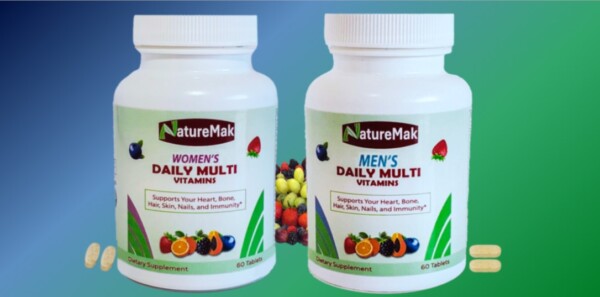Sexually transmitted infections (STIs) are a major public health concern, affecting millions of people worldwide. According to the World Health Organization, more than 1 million STIs are acquired every day, and some of them can have serious consequences, such as infertility, cancer, and increased risk of HIV infection.
Globally, women are more affected by sexually transmitted diseases (STDs) and HIV compared to men. This gender disparity is influenced by various biological, social, cultural, and economic factors, and is more pronounced in developing countries compared to industrialized nations.
Women’s higher vulnerability to STDs and HIV can be attributed to factors such as microlesions that occur during sex (especially in cases of forced sex), higher concentration of HIV in semen compared to vaginal secretions, and a larger mucosal surface area of women vagina.
Additionally, women are at higher risk due to the behaviors of their sexual partners especially in cultures where men are allowed to have multiple sexual partners, including sex workers. This tends to put women in danger and if they refuse sex or request protection, they may face abuse or suspicion of infidelity.
While there are several biomedical interventions available to prevent STIs, such as condoms, vaccines, and prophylaxis drugs, not all of them are equally effective or accessible for different populations. In particular, cisgender women – those whose gender identity matches their sex assigned at birth – may face unique challenges and barriers when it comes to STI prevention.
Doxycycline postexposure prophylaxis (PEP) has been shown to prevent sexually transmitted infections (STIs) among cisgender men and transgender women,
However, a recent study published in The New England Journal of Medicine shows that this promising biomedical interventions for STI prevention, doxycycline postexposure prophylaxis (DoxyPEP), did not work for cisgender women in Kenya who took the medication within 72 hours of having condomless sex. This comes on the heels of the study conducted in the United States which showed that the post-exposure Doxycycline, (DoxyPEP approach) reduced the incidence of STI by two-third among men who have sex with men (MSM), and transgender women,
DoxyPEP is a strategy that involves taking a single dose of the antibiotic doxycycline within 72 hours of having unprotected sex, to prevent the acquisition of common bacterial STIs, such as chlamydia, gonorrhea, and syphilis.
The recent study, funded by the National Institute of Allergy and Infectious Diseases (NIAID), part of the National Institutes of Health, enrolled 824 cisgender women who reported having multiple sex partners and were at high risk of STIs. The women were randomly assigned to receive either DoxyPEP or placebo pills, and were followed for 12 months. The results showed that there was no significant difference in the incidence of STIs between the two groups, meaning that DoxyPEP did not prevent STIs in cisgender women.
This finding contrasts with a previous study conducted in the United States which found that DoxyPEP reduced the incidence of STIs by two-thirds among gay, bisexual, and other men who have sex with men (MSM) and transgender women. The researchers suggested that the different outcomes may be due to several factors, such as low adherence to DoxyPEP, high resistance to doxycycline among the bacteria that cause gonorrhea in Kenya, and low prevalence of syphilis in the study population.
In an accompanying editorial, Dr. Jeanne Marrazzo, the director of NIAID, discusses the implications of these results and calls for more research to address the gaps in STI prevention evidence for cisgender women. She argues that cisgender women have been excluded or underrepresented in many pivotal studies of biomedical interventions for STI prevention, and that the existing interventions may not be suitable or acceptable for them.
Dr. Marrazzo highlights the need to better understand the biological and behavioral factors that influence STI acquisition in cisgender women, and to consider those factors when designing future biomedical prevention studies. For example, she points out that the drugs used for STI prophylaxis may have different effects on the cervicovaginal and rectal tissues, and that the sexual activity preferences and power dynamics of cisgender women may affect their ability and willingness to use certain interventions.
Dr. Marrazzo also emphasizes the importance of developing new and innovative biomedical interventions for STI prevention that are tailored to the needs and preferences of cisgender women. She mentions some of the potential candidates, such as vaginal rings, gels, and films that can deliver drugs or antibodies against STIs, and long-acting injectable or implantable formulations that can provide sustained protection.
Sources
- NIH (2023, April 16). NIH-Funded Study Finds Doxycycline Reduces Sexually Transmitted Infections by Two-Thirds. https://www.niaid.nih.gov/news-events/nih-funded-study-finds-doxycycline-reduces-sexually-transmitted-infections-two-thirds
- NIH (2023, Dec 20). Biomedical STI prevention evidence is inadequate for cisgender women https://www.nih.gov/news-events/news-releases/biomedical-sti-prevention-evidence-inadequate-cisgender-women
- The New England Journal of Medicine. (2023, Dec 21). Doxycycline Prophylaxis to Prevent Sexually Transmitted Infections in Women. https://www.nejm.org/doi/full/10.1056/NEJMoa2304007
















 Users Today : 3
Users Today : 3 Users Yesterday : 7
Users Yesterday : 7 Users Last 7 days : 68
Users Last 7 days : 68 Users Last 30 days : 237
Users Last 30 days : 237 Users This Month : 62
Users This Month : 62 Users This Year : 1214
Users This Year : 1214 Total Users : 4165
Total Users : 4165 Views Today : 8
Views Today : 8 Views Yesterday : 8
Views Yesterday : 8 Views Last 7 days : 95
Views Last 7 days : 95 Views Last 30 days : 417
Views Last 30 days : 417 Views This Month : 87
Views This Month : 87 Views This Year : 2027
Views This Year : 2027 Total views : 22726
Total views : 22726 Who's Online : 0
Who's Online : 0


